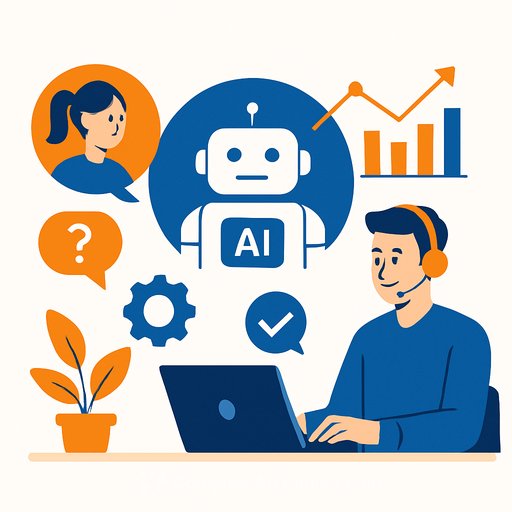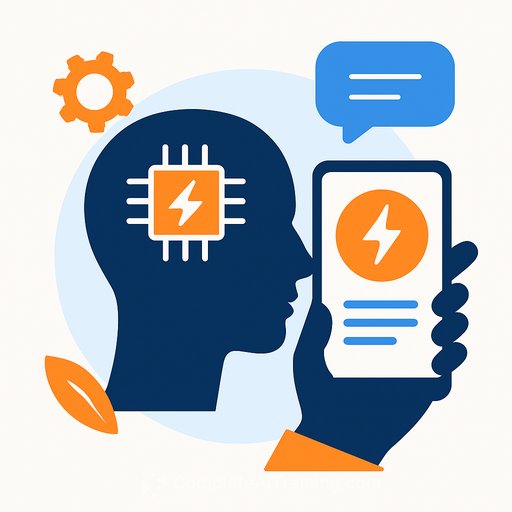The Future of Customer Support: Transformative AI Capabilities
AI has advanced to a point where it can predict events and outcomes before they occur, impacting various industries significantly. Autonomous cars, powered by AI analyzing data from sensors and cameras, are a prime example of this progress. Similar predictive and preventative AI applications are transforming healthcare, retail, manufacturing, and especially customer support.
Customer support is evolving through technology breakthroughs, innovative business models, and agile processes. Here are six practical ways AI is changing how support teams operate and deliver value.
1. Real-time Monitoring
AI-powered diagnostics allow systems to detect issues early and take action automatically. For instance, electric cars can schedule their own service appointments before problems become critical.
In business software, platforms like SAP Cloud ALM collect telemetry data—metrics, logs, traces—from applications and infrastructure. This real-time monitoring lets support teams spot and fix issues quickly, minimizing downtime. Standardizing observability with tools like OpenTelemetry enhances this process across diverse customer environments.
Omprakash H, Senior Director, Blueprint Technologies Pvt. Ltd., shares, “The SAP Cloud ALM solution has been instrumental for our IT operations. It offers real-time insights and seamless integration across all our enterprise applications, making everything run more smoothly. It’s like having a bird’s-eye view of our operations, ensuring efficiency and helping us stay proactive rather than reactive.”
2. Proactive Resolution
Listening to customer feedback helps identify recurring issues and prioritize improvements. For example, users of SAP Business Network and SAP Ariba now seek help 10.8 times less than before due to product features developed from feedback.
AI also supports outbreak detection—spotting spikes in customer complaints or anomalies early—allowing teams to address problems before they escalate.
Alexey Ukrainsky, Solution Support Architect, SAP MCC, explains, “We continuously identify the reasons for frequent customer demands and challenges from inquiries raised to SAP support. This allows SAP to proactively deliver the most impactful product changes before they become a challenge for more customers.”
3. Predictive Analytics
Retail uses predictive analytics effectively for preventative support. SAP’s holiday season readiness program is a strong example, offering a comprehensive customer support profile to anticipate and prevent issues.
Features like virtual support assistants, resource and web traffic prediction, recommendation engines, and pattern recognition help accelerate detection and resolution.
Tarun Luthra, Head of Support, I&CX Solutions, notes, “During Cyber Week 2024, SAP’s holiday season readiness program equipped our support and ops teams to achieve 100% uptime for our customers with the predictive, proactive, and bi-directional support model implemented by the program.”
4. Customer Journey Mapping
Understanding the customer’s path through various touchpoints helps pinpoint where support can improve. SAP Signavio solutions enable businesses to visualize and analyze these journeys, linking customer experience data with operational data.
This approach can reduce the time needed to uncover trends and anomalies, helping companies optimize support processes and increase customer value.
Stefan Gammel, Business Process Consultant, Hilti Group, states, “The challenge in increasing our customer experience lies in the direct link between process and journey activities. I see SAP Signavio solutions as the perfect tools for consolidating these two perspectives to develop operational excellence in step with customer experience.”
5. In-app Support
Embedding support directly inside applications lets users get help without leaving the workflow. AI-assisted self-service options and real-time assistance like live chat reduce the need to escalate issues.
Solutions such as WalkMe and Built-In Support provide proactive, contextual guidance, cutting down support tickets and improving user experience.
Wilhelm Jütte, Chief Product Owner, Customer Support, SAP, compares this to a quick pit stop, saying, “Built-In Support works like a pit stop at a racetrack. The repair crew is right where the action is. The interruption is brief and far less disruptive than taking your car to the workshop, ensuring a smoother return to your activities.”
6. Proactive Mindset
Tools and processes are only effective when teams adopt a proactive mindset. Combining human insight with AI enables support teams to focus on preventing issues before they happen.
This approach reduces stress for customers and support engineers alike, providing peace of mind and custom care even before help is requested.
Derek Matthews, Technical Support – Procurement Chief Innovation Officer, SAP, highlights, “Knowledge management within support is not just about enabling self-service through portals to deflect incoming tickets, but about eliminating the need to come to the support portal in the first place.”
Adopting AI-driven strategies and a forward-thinking attitude prepares customer support teams to meet challenges efficiently while improving the overall customer experience.
For support professionals looking to enhance their AI skills and stay ahead, explore practical AI courses and certifications at Complete AI Training.
Your membership also unlocks:






